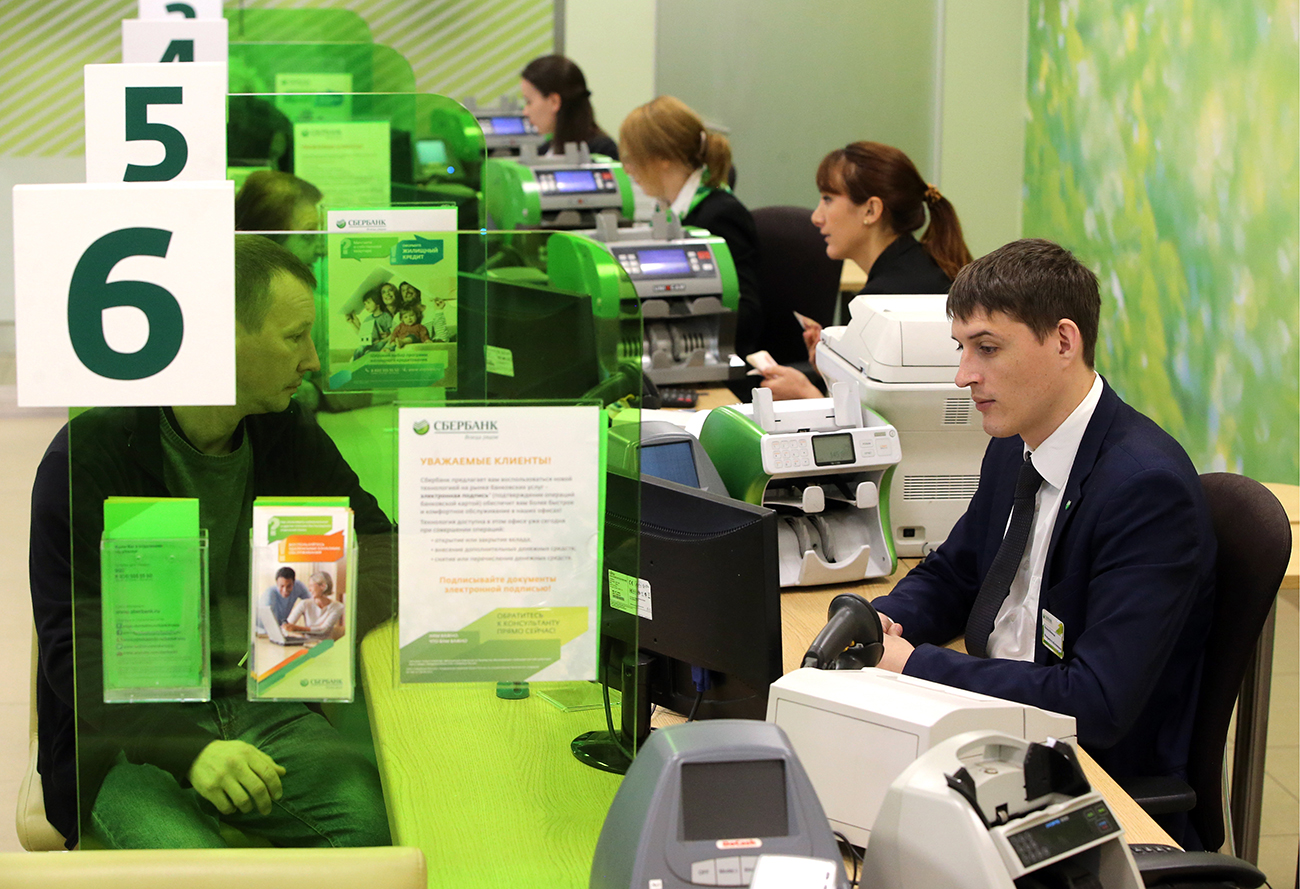Banks report a rise in Russians’ financial literacy

Photo: Staff and custmers in a Sberbank branch in St. Petersburg, Russia.
Peter Kovalev/TASSRussians have become remarkably more active inquiring with banks about different types of accounts, debit cards and various credit issues, reported (in Russian) Izvestia.
Top Russian banks report that the number of phone calls from customers has grown, and they are generally longer in duration. One of the largest banks, VTB 24, said the number of phone calls from individual customers grew 20 percent in one year, to 22 million. Smaller banks reported a similar trend: at Binbank the number of calls rose 150 percent, to 6.5 million; and in Rosselkhozbank, the rise was 80 percent, to 2.6 million.
The lingering economic crisis has made Russians more sober in the assessment of their savings, experts told RBTH.
“In turbulent times people tend to want to save money, and therefore, savings bank products and deposits are popular,” said Anna Tsverkova, the director of Citibank.
The growth of financial literacy also has to do with the development of technology in bank products, said Stanislav Novikov, the director of BKS Ultima. “At the moment, banks are developing more possibilities to open, for example, a deposit account online or pay bills with your mobile phone. This gets people interested in bank services,” said Novikov.
The urban divide
The improvement of financial literacy and the popularization of banking products are trends typical for high-income urban areas, said Julia Makarenko, head of marketing research at OTP Bank. "In small cities, the level of clients' incomes and the level of availability of various banking services are relatively low," she added.
In Russia, the average income level of a client in a city with a population of under 100,000 people is 30 percent lower than the income of those in cities whose population exceeds 1 million. In small cities, there is high demand for microcredit and lending at points of sale, Makarenko said.
Read more: Are Russian banks vulnerable to cyberattacks from abroad?>>>
If using any of Russia Beyond's content, partly or in full, always provide an active hyperlink to the original material.
Subscribe
to our newsletter!
Get the week's best stories straight to your inbox
